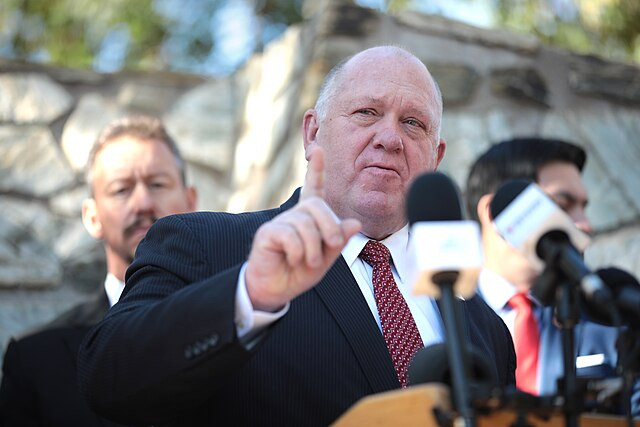President-elect Donald Trump's administration is set to initiate large-scale immigration raids in sanctuary cities, with Chicago expected to be among the first targets. The effort, described as the largest deportation operation in U.S. history, is slated to begin Tuesday, just one day after Trump's inauguration.
Tom Homan, the incoming "border czar" and former acting head of Immigration and Customs Enforcement (ICE), confirmed the timeline in a Friday interview with Fox News. Homan stated that ICE agents would focus initially on individuals considered public safety threats but noted that no undocumented immigrant would be exempt from enforcement. "We're going to take the handcuffs off ICE," he said. "If they're in the country illegally, they got a problem."
Chicago, home to an estimated 400,000 undocumented immigrants, has long been a focal point in the national debate over sanctuary cities. Homan previously threatened legal action against city officials who refused to cooperate with federal immigration authorities. Community leaders and city officials are now scrambling to prepare for the anticipated raids. Deputy Mayor Beatriz Ponce de León acknowledged that the announcement heightened concerns but said the city has been working to educate and support residents. "Hearing confirmation made it more real, more concrete," she said.
On the city's Southwest Side, community organizer Any Huamani has been fielding requests for "know your rights" training and mobilizing rapid response teams. These teams are tasked with monitoring ICE activity, assisting families, and recording interactions with federal agents. The biggest fear is leaving their children behind, Huamani said, adding that volunteers are urging at-risk individuals to memorize key phone numbers in case of detention.
The Chicago Police Department reiterated its commitment to the city's welcoming ordinance, which limits local cooperation with federal immigration enforcement. A department spokesperson confirmed that officers would not document immigration status or share information with ICE but emphasized that they would not interfere with federal agents conducting operations.
Nationwide, Trump's plan has sparked significant debate. Critics argue that the scale of the operation raises serious logistical and legal questions, including where to house detainees and how to handle due process requirements. Advocates for immigrant rights have expressed concerns about the potential for family separations and the impact on communities. The Biden administration's controversial "zero tolerance" policy during Trump's first term led to the separation of more than 5,000 children from their families, an episode that still reverberates in public discourse.
Illinois Governor J.B. Pritzker has reaffirmed his commitment to protecting nonviolent undocumented immigrants, stating during a recent press conference that the state would resist federal overreach. However, the legal and political challenges facing sanctuary cities are likely to intensify as Trump's administration moves forward with its aggressive immigration agenda.
Trump's mass deportation plans represent a stark escalation in federal immigration enforcement, with the president-elect vowing to act swiftly after taking office. "It'll begin very early, very quickly," Trump told NBC News on Saturday, declining to specify which cities would be targeted.






